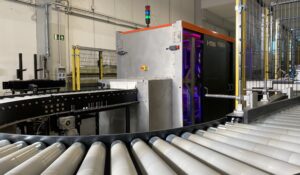In industrial product design, complying with regulations and obtaining the right certifications is essential for safety, product quality and acceptance in international markets. Whether you are a product design company in Barcelona or anywhere else in the world, making sure your products comply with the relevant standards is key to ensuring success and competitiveness.
In this article, we will discuss the most important regulations and certifications that any industrial product designer must take into account when developing their products. Keep reading!
Importance of Regulations in Industrial Product Design
Standards in industrial product design are a set of regulations that ensure that products are safe, efficient and environmentally friendly. Complying with these regulations ensures that the product is in compliance with local and international laws, as well as minimising risks to users and reducing the company’s legal liability.
For example, in the European Union, any industrial product must comply with the CE marking, which certifies that the product complies with applicable safety, health and environmental protection regulations.
Key Regulations in the European Union
For industrial product design companies in Europe, the most relevant regulations include:
- CE marking: This is mandatory for most products marketed within the European Economic Area (EEA). It certifies that the product complies with EU safety, health and environmental regulations. To obtain CE marking, products must go through a rigorous conformity assessment process.
- RoHS (Restriction of Hazardous Substances): This regulation regulates the use of certain hazardous substances in electrical and electronic equipment, such as lead, mercury and cadmium. RoHS compliance is key if your industrial product design includes electrical or electronic components.
- REACH (Registration, Evaluation, Authorisation and Restriction of Chemicals): This regulation obliges companies to identify and manage the risks related to the chemicals they manufacture and market in Europe.
Essential Industrial Product Design Certifications
In addition to complying with regulations, obtaining certifications is crucial to ensure that products meet the highest quality and safety standards. Below are some of the most common and relevant certifications in industrial product design:
- ISO 9001 – Quality Management System: This international certification ensures that a company follows the necessary quality standards to meet the expectations of its customers. In the design of industrial products, having ISO 9001 certification ensures that the design, manufacturing and delivery processes are efficient and of high quality.
- ISO 14001 – Environmental Management: This certification focuses on environmental management and how companies minimise their ecological impact. For a product design company committed to sustainability, obtaining this certification enhances reputation with customers who value environmental responsibility.
- ISO 13485 – Quality Management Systems for Medical Devices: Although more focused on medical devices, ISO 13485 is crucial for companies designing industrial products that require strict levels of quality and safety control, such as medical equipment or precision industrial devices. This standard ensures that the product complies with strict regulations and safety standards, especially when marketed in sectors where human life is involved.
- ISO/TS 16949 – Quality Systems in the Automotive Industry: This specific standard for the automotive industry sets out the requirements for a quality management system at all stages of product development, from design to manufacture and assembly.
- UL (Underwriters Laboratories): This certification is crucial if you design electrical and electronic products. UL-certified products have been tested and meet US and Canadian safety standards. Obtaining this certification can be critical if you want to market your products in these markets.
Challenges in Complying with Standards and Certifications in Product Design
One of the biggest challenges facing industrial product design companies is keeping up with regulations and certifications, especially when operating in global markets. Each country may have its own specific requirements and, in many cases, what is acceptable in one region may not be acceptable in another.
For example, a product design company in Barcelona that wants to export to the United States must comply not only with the CE mark, but also with specific US regulations, such as those set by the Consumer Product Safety Commission (CPSC).
Another challenge is the cost and complexity of the certification process. Obtaining certifications such as ISO 9001 or UL may involve a significant investment in audits and process modifications, but the long-term benefits far outweigh the costs, as they ensure product quality and safety and enhance the company’s reputation.
Preparing for Compliance and Certification
To ensure that your industrial product design complies with regulations and obtains the necessary certifications, here are some steps you can take:
- Research target markets: Before you start designing, make sure you are aware of all applicable regulations and certifications in the countries where you plan to market your product.
- Consult with legal experts: Work with lawyers or industry compliance consultants to ensure that your product complies with all laws.
- Work with certification labs: If you need to obtain certifications such as UL or CE, work with testing and certification labs to ensure that your product meets the requirements.
- Maintain a quality management system: Implementing a quality management system such as ISO 9001 from the beginning will help you maintain high standards throughout the product development process.
i-mas, your Product Design Company
Complying with regulations and obtaining the appropriate certifications is a key step in ensuring that your industrial products are safe, high quality and globally competitive. While the process can be challenging, the effort is well worth it in the long run, as it will allow you to position your company as an industry benchmark and minimise the legal risks associated with non-compliance.
If you are looking for a company specialising in product design and development, i-mas is your best option. With over 20 years’ experience in the sector and a team of more than 70 highly qualified professionals, we support companies at every stage of the development of design and innovation projects. We work side by side with our clients, applying our experience in product engineering to ensure that designs are effective, functional, sustainable and adapted to current regulations.
At i-mas, our mission is to provide innovative solutions that drive your company’s growth. Are you ready to take the next step? We want to meet you!



